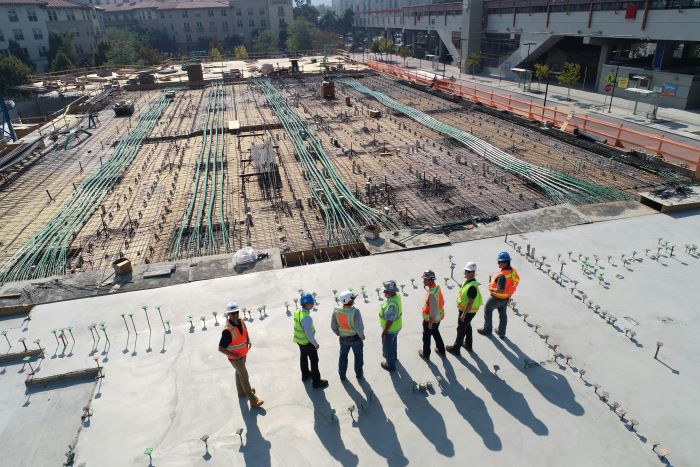JU researchers modernise environmental assessment process
.jpg)
Photo: Scott Blake at Unsplash
Sweden faces a crucial challenge: enabling rapid and sustainable development of critical infrastructure without compromising environmental protection. The process of environmental assessment is central to this work – but it is often slow, complex and difficult to predict. Now, researchers from the School of Engineering at Jönköping University (JU) are developing a digital platform to increase transparency, predictability and access to environmental data.
The project is called SMARTE and is funded by the Swedish Research Council FORMAS. It is an interdisciplinary project involving several researchers from JTH.
“Our project will help to reduce administrative bottlenecks and ensure that projects meet environmental requirements more efficiently,” says Annika Moscati, Associate Professor of ICT-BIM in Construction at JTH and one of the researchers working on the project.
Critical infrastructure refers to the societal functions, systems and facilities that are essential for a country to function – and which must be protected to avoid serious disruption to society.
The research project started in June 2025 and will run for three years. The results are expected to contribute to faster decision-making, reduced costs and increased legal certainty – without compromising environmental standards. This will benefit not only the construction and energy sectors, but also public actors and wider society.
Digitalization as an enabler
By integrating digital tools such as geographic information systems (GIS), artificial intelligence (AI), predictive modelling and cyber security, SMARTE is developing a structured and digital model for permit assessment. The goal is to create a centralized digital platform that simplifies communication between actors, automates parts of the application process and improves access to environmental data.
"Most companies working on projects that require an environmental assessment process face long lead times, with many stakeholders involved and a lot of manual work. It can take a very long time to obtain the necessary permits. There is also a great deal of confusion when various stakeholders and authorities act in different ways. Our project aims to facilitate and create a more coherent and sustainable permit process," says Ulf Seigerroth, Professor of Informatics at JTH and one of the researchers involved.
The project is based on close collaboration between authorities, industry and technical experts. Through case studies from industry partners and analysis of existing processes, SMARTE will develop a scalable model that can be applied in several sectors – from energy production to urban development.
SMARTE is a Swedish acronym that stands for ’En sammanhållen miljötillståndsprocess för byggprojekt avseende kritisk infrastruktur’ - in English, ”A Coordinated Environmental Permit Process for Construction Projects Concerning Critical Infrastructure".
The work is being carried out in the context of the government inquiry SOU 2024:98 (published in January 2025 and containing proposals on how environmental assessments and permit processes can be better coordinated, including through changes in legislation and the work of authorities) and takes a holistic approach to how the assessment process can be modernized.
SOU 2024:98 is a government inquiry entitled ‘A new coordinated environmental assessment and permit review process’, which was published by the Ministry of Climate and Enterprise in January 2025. The report consists of three parts and contains proposals on how environmental assessments and permit processes can be better coordinated, including through changes in legislation and the work of public authorities.
